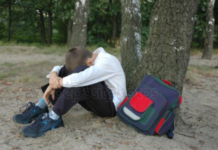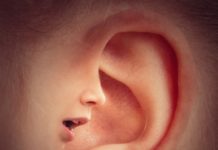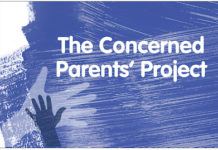“I’m Not Going, You Can’t Make Me!”: A Community Approach to School Refusal
Consider an imaginary child called Jack who has been avoiding school as much as possible for a month. Standard practice would be cognitive-behavioral therapy or psychoactive drugs to help Jack deal with his anxiety. But what if Jack's social network instead mobilized to help him regain the role of student?
Interview: How Does Climate Change Affect Youth Mental Health?
Psychiatric epidemiologist Jennifer Barkin talks about her research on the traumatizing effects of extreme weather events on youth and how caregivers can help them build resilience.
Engaging “Madness”: A Guide for Significant Others and Families
Using personal stories from my own family, my new booklet Engaging 'Madness' paints a clear picture of what an alternative healing journey outside the biomedical paradigm can look like.
Giving Caregivers a Platform: Chandra, Mother of Sophia
This is the story of Chandra and her daughter Sophia (not their real names), who has been in the mental health system since the age of 10.
Screening for Perinatal Depression: An Effective Intervention, or One That Does More Harm Than Good?
Why does the U.S. describe perinatal screening as providing a proven benefit, while the task forces in the U.K. and Canada see no evidence of such benefit?
Monarch eTNS Inspires “Stop the Psychiatric Abuse of Children!” (SPAC!)
The FDA approval of the Monarch eTNS device is the latest form of psychiatric-inspired child abuse. If not stopped, it will afflict millions of children in unimaginably damaging ways. It has inspired us to form Stop the Psychiatric Abuse of Children (SPAC!) a new international advocacy organization.
Interview: Is Forced Treatment Deterring Youth from Seeking Mental Health Care?
Researcher Nev Jones, Ph.D., talks about her study of youth hospitalized against their will, and how their experiences affected their attitudes about mental health treatment and providers.
Talking About Psych Diagnoses and Drugs: A Primer for Parents & Professionals
It is important to tell parents the truth about what can and cannot be known about their child. In this way, people come to appreciate that labels and treatments offered by psychiatric professionals are far from being grounded in hard science.
Interview: Abuse and Neglect at Private “Troubled Teen” Centers
Parents, beware: Disability rights lawyer Diane Smith Howard shares disturbing findings on conditions at youth residential treatment facilities.
Interview: Moving Toward a Human Rights Approach to Student Mental Health
Psychologist Jim Probert of the University of Florida's student counseling center explains why "Our goal is not to take the steering wheel out of the person's hands."
Supporting Children and Parents to Withdraw from Psychiatric Medication
The main problem with prescribing psychiatric drugs to children is that it hasn’t been very effective.
Mad/Cripistemologies of Pandemic Parenting: Insights for Our “Post-COVID-19” Present
Respondents described the grief and rage associated with being socially isolated while healing from childbirth and caring for a newborn, in some cases, entirely on their own.
The Concerned Parents’ Project: 31 Questions
The Concerned Parents’ Project grew out of the idea that there may be parents out there who are confused and bewildered by the mixed messages on what it is to have normal and healthy childhood experiences. We posted a new question and answer for parents each day in March.





















